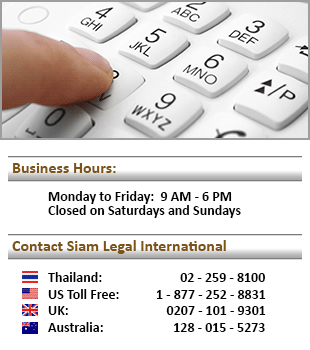Thailand income tax system is governed by the Revenue Code and applies to individuals, companies, and other entities earning income within the country. The tax system uses progressive rates for individuals and flat rates for corporations, with specific rules depending on residency status and income source. Compliance is key, as penalties for late filing or evasion can be significant.
1. Tax Residency in Thailand
- Definition of Residency:
- An individual is considered a Thai tax resident if they stay in Thailand for 180 days or more in a calendar year.
- Residents are taxed on worldwide income, while non-residents are taxed only on Thai-sourced income.
- Tax Identification Number (TIN):
- Individuals working or earning taxable income must obtain a TIN from the Revenue Department.
2. Personal Income Tax (PIT)
2.1 Taxable Income
- Includes wages, salaries, bonuses, investment income, rental income, and profits from business operations.
- Benefits-in-kind, such as housing or vehicles provided by employers, are also taxable.
2.2 Tax Rates (Progressive System)
- Income is taxed at progressive rates ranging from 0% to 35%, depending on the amount earned:
- Up to 150,000 THB: 0%
- 150,001 to 300,000 THB: 5%
- 300,001 to 500,000 THB: 10%
- 500,001 to 750,000 THB: 15%
- 750,001 to 1,000,000 THB: 20%
- 1,000,001 to 2,000,000 THB: 25%
- 2,000,001 to 5,000,000 THB: 30%
- Over 5,000,000 THB: 35%
2.3 Deductions and Allowances
Taxpayers can reduce their taxable income with deductions, such as:
- Personal allowance: 60,000 THB.
- Dependent allowance: 30,000 THB per child (up to 3 children).
- Health insurance premiums and education expenses (with limits).
2.4 Exemptions
Certain types of income, such as diplomatic salaries and some foreign pensions, may be exempt.
3. Corporate Income Tax (CIT)
- Standard Tax Rate:
- Companies are taxed at a flat rate of 20% of net profits.
- Small and Medium Enterprises (SMEs):
- Reduced rates apply for qualifying SMEs with profits under specific thresholds.
- Taxable Entities:
- Both Thai companies and foreign companies operating in Thailand are subject to CIT.
- Foreign companies pay CIT on Thai-sourced income only.
4. Value Added Tax (VAT)
- Standard Rate:
- VAT is levied at 7% on most goods and services.
- Exemptions:
- Educational services, medical services, and agricultural products are often exempt.
- Registration:
- Businesses earning more than 1.8 million THB annually must register for VAT.
5. Withholding Tax
- Purpose:
- Certain payments, such as dividends, royalties, and interest, are subject to withholding tax.
- Rates:
- Dividends: 10%.
- Royalties: 15%.
- Interest: 15%.
- Rates may be reduced under double tax agreements (DTAs).
6. Tax Filing Requirements
6.1 Individuals
- Must file annual PIT returns by March 31 of the following year.
- Late filings incur penalties and interest on unpaid taxes.
6.2 Corporations
- Required to file mid-year and annual returns.
- CIT is paid in two installments: an advance payment based on estimated profits and a final adjustment.
7. Tax Treaties
Thailand has entered into double taxation agreements (DTAs) with over 60 countries to prevent dual taxation. DTAs provide benefits such as reduced withholding tax rates and exemptions for certain types of income.
8. Common Challenges
- Complex Compliance Requirements:
- Navigating multiple tax forms and deductions can be time-consuming.
- Language Barriers:
- Official tax documents are often in Thai, making professional assistance necessary for non-Thai speakers.
- Penalties for Non-Compliance:
- Fines and interest for late payments can be significant.
Conclusion
Thailand’s income tax system is well-regulated, with distinct rules for residents and non-residents, individuals, and corporations. Understanding the tax framework and complying with filing requirements ensures smooth financial operations and avoids penalties. For businesses and individuals unfamiliar with Thai tax laws, consulting with a tax advisor or legal professional is highly recommended.


